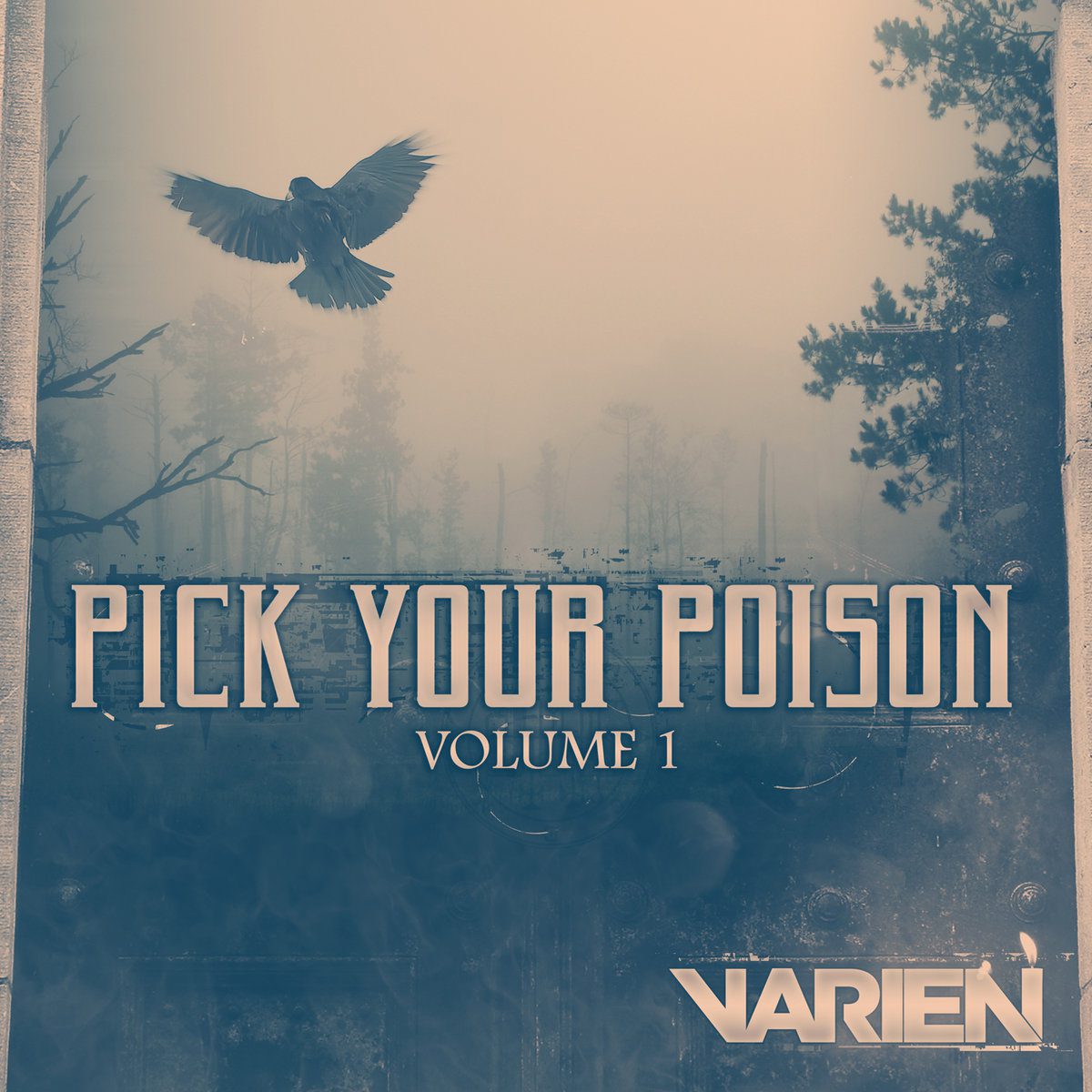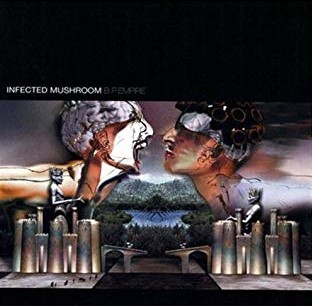Introduction: It’s been far too long…
Four people. Three cellists. One drummer. That’s all Cello Fury needs to succeed. And despite the simplicity, this band is able to work wonders with their limited options in sound. And yet all of these songs are beautifully unique. This is Cello Fury, both the band name and the album title.
Cello Fury – Infinity Rises (7.75): Cello Fury plays at a variety of tempos and in a variety of moods. Sometimes opting for slower sweeping melodies, other times putting full effort into conserving high amounts of energy throughout the song. This song definitely falls under the latter category through and through, wasting almost no time to squander over the slower melodies, except for maybe 8 seconds near the middle of the song and a slight bit of the outro (though the drum solo more than makes up for the second somewhat slower portion). Also, there’s some hefty amounts of syncopation in many of the upbeat parts of the song. It’s been too long since I’ve reviewed some good syncopated music.
This song likely has some of the strongest bass of the album and many other songs in their discography. It always feels quite prominent, very rarely fully outshined by the other two melodic cellos. It doesn’t necessarily keep a fully consistent pace either, often upping and slowing its tempos depending on the current mood of the song.
The melodic cellos have an equal amount of energetic variety. Constantly switching between the quicker melodies heard straight from the beginning and some longer more sweeping notes that allow the beauty of the cello to seep in at other points. I’d choose a favorite part of the song if I could, but there’s such a good variety of joyfully played strings, that I’m uncertain if it’s possible for me to choose any moment over another.
This song is definitely a good introduction to the Cello Fury discography as many of the things I said in this portion of this review could also be applied to several other Cello Fury songs. And yet, it still feels as if it has its own little twinge of flavor somehow. Regardless, this is just the tip of the iceberg when it comes to Cello Fury.
Cello Fury – Against All Odds (7.5): Against all Odds starts off quite near silence with only one cello in the distance growing ever closer with time. As it nears my ears, the other two cellists begin to introduce themselves, lightly plucking their strings for a bit as the song culminates into a tense build-up. With a couple of louder sweeping notes serving as a transition to allow the star cellists of the moment to rapidly increase their speed as the song builds up past the introduction into the main body.
From this point onward, the melodies remain relatively balanced. No insanely rapid strokes like in the introduction, nor any moments where one cellist overdominates the rest. I don’t want to say it’s uneventful as it does have a decent variety of melodies throughout its duration, but I’m not really noticing too many moments that stand out from the rest of Cello Fury’s work. There is a moment a bit over 2 minutes where the cellos almost seem to fade out for a second which gives a nice bit of unique flavor to this song and there’s a decent slightly cinematic outro that serves well as the finale. But when push comes to shove, the introduction really was the best part of the song as the tension there served as the most noteworthy note of the three and a half minutes.
Cello Fury – Anarchy (7.75): Anarchy. Pure chaos. That’s what the title of this song describes. Would I describe the song as Anarchy itself? Well, not fully. I’ve heard some artists push the boundaries and break the rules in order to create chaotic tracks of pure anarchy, but Cello Fury is not one of them. That being said, in comparison to much of the rest of the album, Anarchy does eventually feel as if it somewhat deserves its title as, by the end, each cello is playing its own melody, creating an interesting cluster of different tempoed melodies, that somehow still fit together.
But that’s not how the song began. It actually, starts quite calmly with the cellos blending together to make a much more uniform melody. This introduction is quite beautiful to listen to and I’d be perfectly content if that’s what the rest of the song sounded like as well. But switching the song into a new upbeat gear is also quite a pleasant ride, though in entirely different mood consisting of the usual melodic variety. Like I’d mentioned earlier, there’s a bit more variety in the melodic mood even between the different cellos as they play together at the same moment. I think what interests me most about this song, however, is the texture. There are a couple of points where the cellists push their instrument to the limit, creating a harsher sound in comparison to the usual smoother notes that we’re used to. And I feel that these moments provide the flavor that is unique to this song in particular.
Cello Fury – Pins & Needles (7): Pins and needles are sharp little things. Which is quite fitting because this song is quite sharp itself.
Usually when I think of Cello Fury, I think of longer sweeping notes, but this song has none of that. Every single note here is plucked rather than strung. Even the drums, once introduced resonate longer than these short plucked cello notes. making it perhaps the most unique stand out song on the album. Is it better because of this? Honestly, I’m not sure. Now this song is a good one and I do find it fascinatingly different from the rest of the album. But, in the end, my preference is still the sweeping cello notes.
There are the light strength of funkiness to the plucks, meaning this song is certainly the funkiest on the album at some parts. But in many cases, I prefer beauty over funk. This album is one such case.
Cello Fury – Daybreak (7.75): Ok that plucky little break was nice and all, but I think it’s time to get back into the more upbeat stuff. Daybreak is one of the best examples of upbeat Cello Fury (other than maybe the very first track of this album, which you already know all about or maybe the last track of the album, which you don’t know about). This is especially apparent at the beginning of the song as each cello comes in one at a time, each of them starting off with that rapidity that served as the most upbeat portions in several other songs. Not long after that, the song admittedly does slow down a bit with slower paced melodies and a casually paced drumbeat.
But that is a deception.
I am uncertain if I’ve actually had a chance to review any other song that does this yet, but over the course of the next thirty seconds, the drumbeat actually gradually accelerates over the next thirty seconds, picking up the pace of the melodies as it goes forward. It’s not quite like the many double tempo switch-ups I’ve expressed adoration for in the past. This involves a bit more unique subtlety, and in many cases, I like it even more. The slowness of this section is not only temporary, it’s merely there to serve the purpose of making the rest of the track appear that much faster.
From there on out, I’m not certain if I have much specific to say about the song. There’s some good melodic development as usual from Cello Fury and the three cellists do a great job of dancing around each other. There are a couple of points in the song where there’s a slight calm, but it never lasts excessively long, the song always longing to return to the full paced drumbeat, complete with either longer sweeping notes or the exact opposite with much more claustrophobically rapid notes. All up until a bit of an abrupt ending.
Cello Fury – Middle Ground (7.75): Like Pins & Needles, Middle Ground begins with some plucked notes across each cello. But unlike, Pins & Needles, these plucks don’t stay excessively long into the song, breaking way for a slightly rougher rising note that leads into the usual sway of Cello Fury. As usual the two higher cellos dance around each other throughout the song while the lowest cello works in the background as a bassline that holds the rest of the song up. Except, I feel that bass cello gets a bit more of a spotlight here than it usually does, especially with the song’s final moments as the bassline fully takes over quite strongly.
That’s not to say the melodies are bleak and unremarkable. The song seems to switch back and forth between two moods (outside of the beginning and ending of the song). The first of the two is a bit slower paced. The drums are going halftime and the notes strung by these cellos are longer and more flowing, allowing for a bit more simplicity. At many other points in the song, the song picks up pace with a greater variety of lightly energetic melodies. Oddly enough, there isn’t actually much “middle ground” between the slower and faster portions of the song, wasting very little time while transitioning between the two states (though usually not too abruptly; the bass cello makes for a good bridge between the two sides of this dichotomous song, remaining the constant, highlighted element this song has to offer.
And there I go talking about the bass cello again. Just goes to show how important this lower cello is in making this song work as well as it does.
Cello Fury – Silenced (7.5): Silenced is fittingly the calmest song that this album has to offer. And while I typically think of the more energetic tracks of theirs, I can’t help but find myself entranced by these Cello solos. Well, all three of them are playing at once, but they are admittedly playing without any assistance from the drummer for once.
As usual, the three cellists, blend their melodies together seamlessly, but I feel like this track in particular really highlights the beauty the three cellists are capable of creating. While the song doesn’t build in intensity and energy like the rest of the album. I’d most certainly say it grows in beauty. Every moment draws me deeper into this lovely piece of work. I honestly have very little to say about it other than how lovely it is, but sometimes that’s all it takes.
Cello Fury – Odyssey (8.5): Of all of the songs on the album, I feel like this one most closely fits the ideal vision I have of Cello Fury’s work. Several of the songs on this album have been energetic songs that I’ll happily listen to again and again, but Odyssey is the song that feels most like a journey through sound, which is quite fitting because an odyssey is defined as an epic journey.
Now while, the first forty seconds of this song may start out even calmer and closer to silence than Silenced itself, you shouldn’t be fooled. For that is only the first forty seconds. And as soon as those forty seconds are over, the song begins to pick up pace, slowly building up with the two upper cellos working in tandem to create a tense nerve wracking feel with the bass cello stabbing in the distance. As the song builds it begins to pick up more pace as it goes on, eventually breaking out into flowing melodies that conjure images of a ship swaying in the waves as it sails through an ever-increasing storm. It’s a magically glorious feeling that serves as my favorite minute of music that this entire album has to offer.
Throughout much of the rest of this song, these beautiful, yet varied, melodies take up most of its duration. Though there is a small bit in the middle of the second half that interrupts the flow with something a bit harsher. It’s a short interlude of synchronized stabs and I feel it leads to a great reminder of the intensity that this song had began with in its build-up. It’s a bit jarring, and yet it fits with the overall mood of the song, nonetheless. Just a slight bit of variety to enhance the flavor of the rest of the song before it returns to those beautiful flowing melodies for a finale.
Truly the most interesting song that this album has to offer.
Cello Fury – Down the Road (6.75): This song and the last two form a sandwich. A sandwich made of soft warm and relaxing bread with some nice spicy excitement packed in the middle. And while this slice of bread isn’t quite as soothing as Silenced. I mean it has a slight drumbeat this time, so you know it’s a slight bit more energetic. Just a slight though. It still is quite nearly as gorgeous with a more classical feel to it than much of the rest of the album (or at least compared to Odyssey). Unfortunately, this relaxing classical vibe also is rather riskless, which leaves me very little to talk about. It’s relaxing, but Silenced is more relaxing. It has some neat plucks here and there, but that’s Pins and Needles’ specialty. Like many of the songs in this album, the cellos weave in and out with one another to create a beautiful arrangement of complimentary melodies, but every song does that.
So, while Down the Road is a good song, it is also the least exceptional.
Cello Fury – Shockwave (8.25): Shockwave, however, if a fantastic example of the speedy skill of Cello Fury’s members. There’s a tension built in the first ten seconds of the song as each cello introduces itself with a longer note, eventually coming together for a chord before immediately capitalizing on the aforementioned tension by throwing the song immediately into the most rapid paced melody on the entirety of the album. A rushing feeling leading to the main body of the song, a conversation.
This conversation takes place between two of the cellos in particular, the midrange cello and the uppermost cello in pitch. Very rarely do the two cellos actually sing in unison, but instead find themselves tossing the focus back and forth, one cello playing the spotlit melody at a time, while the other cello backs them up. Because of this back and forth, Shockwave treats us to one of the most varied collections of melodies on the album (it’s either this or Oddysey). Every melody flows beautifully into the next, even when it seems that the two higher cellos are arguing for attention Also, because I’ve been ignoring the bass cello for so long I do want to mention that it has some great moments as well such as that note midway through the song that serves as a powerful transition from the musical conversation to the slightly more harmonious chorus.
But it’s the calming bridge that allows this song to become whole. Alone it simply serves as a break between the last chorus. One cello spreading long notes to serve as the structure holding up the other two. One cello plucking softly to keep with the calm atmosphere. And one cello above them all, playing a melody that beckons the other to join in and it’s here, in one final chorus that everything truly begins to come together, the two arguing cellos now playing in unison. A fitting finale to this song. A fitting finale to this album.
Conclusion: As I bring the first unscheduled review to a close, I find myself at a loss for words. I’m not speechless from amazement as it’s simply a good album, not a fantastic one like Andy Hunter – Life or THYX – Headless. I just feel that Cello Fury’s work is pretty self-explanatory. It’s a simple setup that happens to make some glorious magic in the form of this debut album and the other two that are currently in existence.
But I’ll get to those at a later date. I’ve got my eyes set on some more familiar artists for a while. In fact the next review contains a familiar song. A song that you will soon find very familiar.



